Jimmy Barnes’ documentary Working Class Boy to premiere this month
LEGENDARY South Australia-bred Jimmy Barnes has had to revisit some harrowing childhood memories during the making of a documentary about his life.
Music
Don't miss out on the headlines from Music. Followed categories will be added to My News.
JIMMY Barnes was enjoying one of those golden games of golf when he sliced the ball into the cemetery next to the course.
It was a couple of days after a preview screening of the Working Class Boy documentary, based on his best-selling memoir, which Barnes had watched through tearstained eyes surrounded by family and friends.
When his ball landed in the cemetery in the NSW Southern Highlands where his mother Dorothy is buried, the anger stirred by the film’s exploration of his childhood scarred by domestic violence, poverty and abandonment was “just too much.”
Dorothy died just before Working Class Boy was released in October 2016.
“I was hitting really well and then boom, straight into the graveyard,” he said.
“I thought ‘F … mum, did you have to do that, it wasn’t nice. You ruined my life, now you are ruining my golf. And I joked about it. But then suddenly, I got angry.”
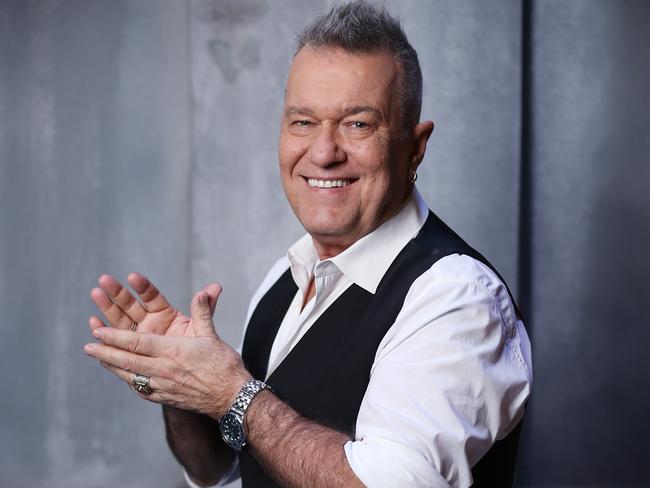
Even after writing hundreds of pages exploring his past, reliving it nightly across the epic 93 Stories and Songs shows during the past two years, Barnes said he may be able to forgive his mother but struggles to understand why she allowed her children to go through a childhood of hell.
Barnes said he omitted some of the more graphic and harrowing incidents of abuse he and his siblings suffered after the family immigrated from Glasgow to settle in South Australia in the early 1960s.
“The hardest thing about all of this is mum. I don’t understand. She knew what was going on. I’ve gone through phases when I have been furious, just furious. They knew,” he said.
“We were abused by people who were there, who were their friends and were continually brought back into our house, when dad (James Swan) was there, when Reg Barnes was there, all her friends.”
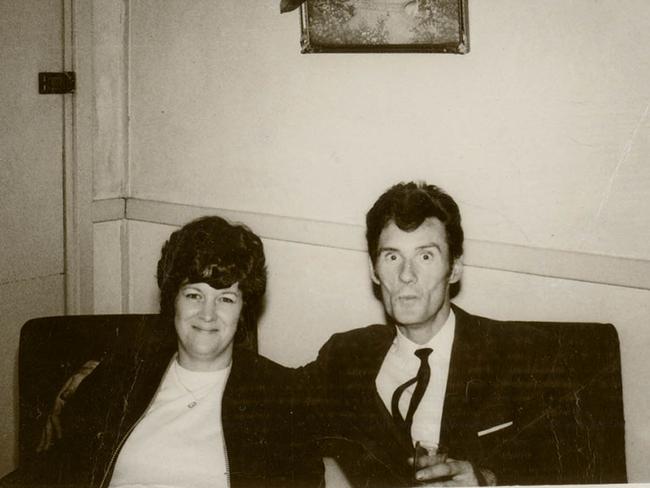
The documentary, which will premiere at the Melbourne Film Festival this week ahead of its cinema debut on August 23, takes Barnes back to Glasgow and then Elizabeth and Glenelg in South Australia to revisit some of those dark years.
His mother lived in the South Australian beachside suburb after leaving her children with their alcoholic father. Barnes would go to the Glenelg jetty to escape his home, unaware Dorothy was nearby.
And at just nine-years-old, he would sit on the end of that jetty and contemplate diving into the water below and ending his life.
The film has filled in blanks for his family after decades of the siblings not talking about their childhood experiences.
“The worst thing after I got home from the screening the other night was when my sister Lisa rang. She’d seen bits of the film and read bits of the book,” Barnes explained.
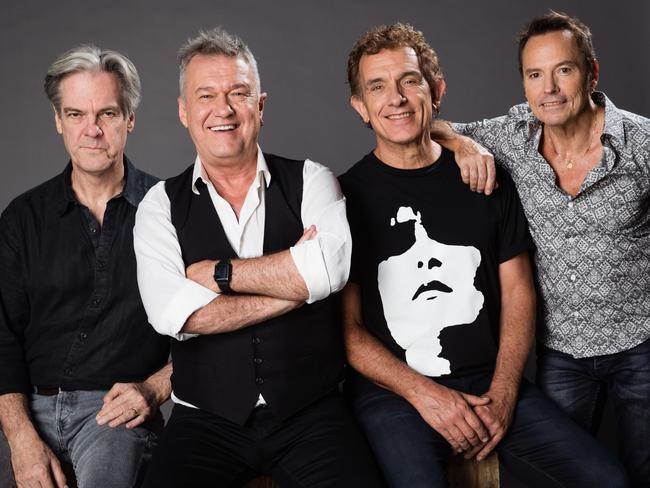
“When I joined Cold Chisel and she would have been about 11, my mum ran away again and deserted the kids again, a second time. Lisa said she knew she was in Glenelg somewhere and never realised that is where I used to go.
“At 11-years-old she used to wander around Glenelg looking for her and she was gone for months and months. My younger brother ended up living in a squat at 12, sniffing glue, because she deserted him.
“I’m furious. Sitting there watching the film, that’s what I have to rationalise because I’ve tried to be calm and think of the big picture and how it was tough for her. But I never would have left my children. And she did, more than twice.
“I’ll take it up with her in the next world.”
The documentary also features the first time his Cold Chisel bandmates have addressed the revelations of Working Class Boy from birth to joining the band.
They appear in the film, with both Don Walker and Ian Moss acknowledging they had no clue about the events which had shaped their volatile frontman.
Even though the men have spent decades sharing their lives in vans, pub dressing rooms and stages, as Walker said “we’re blokes”, so they didn’t talk about it.
“I didn’t talk to anybody. I didn’t talk to my siblings, we didn’t talk about it when it was happening, we didn’t talk about it when we were splintering and when I left to go to Cold Chisel, the last thing I wanted to do was think about it,” Barnes said.
“From the time I was 16 through to now, I was medicating. So the last thing I ever wanted to do was to talk to the band about it.”
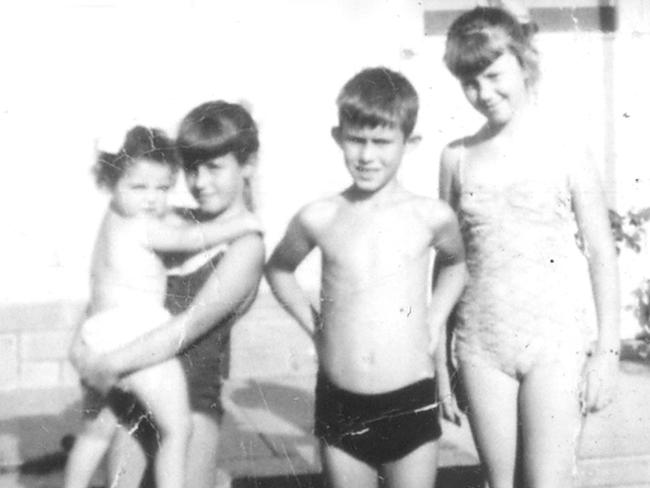
With the benefit of hindsight, Barnes can hear the stories of their lives in the songs.
“We all ran to the music. For all our own different reasons, we ran to the band to get away from something else,” he said.
“I’m sure it came out in Don’s songwriting, it came out in Ian’s guitar playing and my singing, without even speaking about it. And without any of us feeling each other’s pain.”
Cold Chisel join Barnes to perform the sold-gold classic Flame Trees in the film. The rocker reveals he always struggled to sing the composition, written by Walker and the band’s late drummer Steve Prestwich, about revisiting your hometown.
He would sing it every night during the Working Class Boy: An Evening Of Stories and Songs tour and you could feel him struggling not to break during the performance.
“During the process of doing the show, it was difficult because not only had I realised the impact of my childhood but I realised in the process of getting the show together that every time I sang it there was these knots and lump in my throat,” he said.
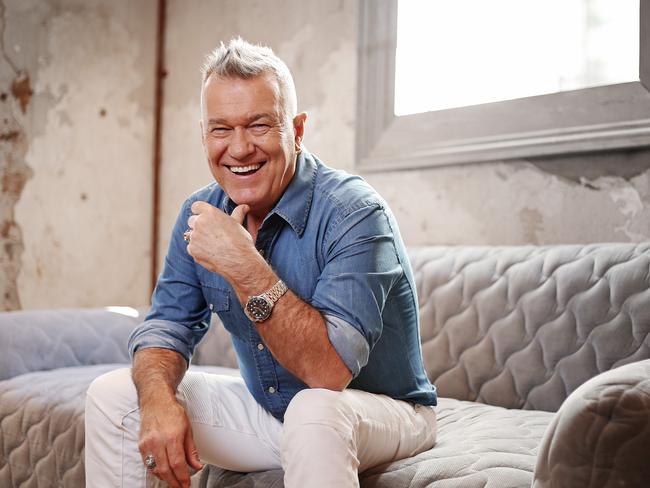
“It became part of the stage show and part of the journey of coming back to South Australia and facing all of that stuff.
“Flame Trees was so integral to the story because I had run away from my past, I ran away from my childhood but you can’t run away from home.
“That lifeline, connection to your past, good or bad, is never severed. Ever. It’s always there.
“I’ve sung Flame Trees a lot since at my shows and now I see it as a bit of a gift to sing it. It still hurts but it’s not causing me the pain.”
The documentary will close the long and public examination of his life but Barnes said he is still a “work in progress” to heal the scars of a lifetime of addiction and atone for his mistakes.
“There’s been talk of doing a second film but I don’t think so. I think I’ve got to let it go and move forward now,” he said.
“Both these books, I polished them up a bit so it wasn’t as bad as it was. There’s a lot of pain I can’t talk to anybody about so I think the way to let that out is either in songwriting or I might write fiction.
“Like I’ve said, there’s a horror story there. I could write that without being enmeshed in it.”
Working Class Boy opens on August 23.
Originally published as Jimmy Barnes’ documentary Working Class Boy to premiere this month
